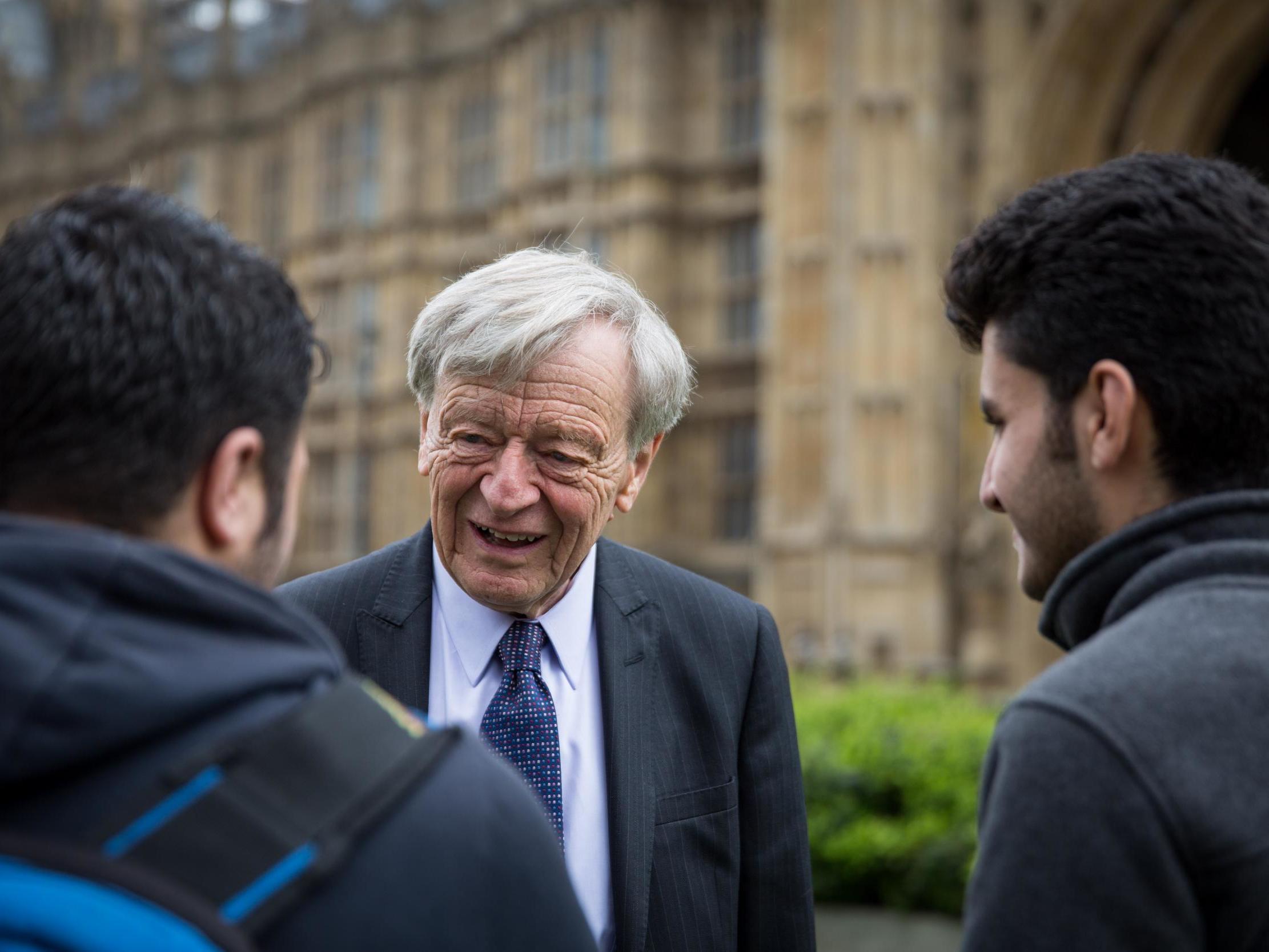Home Office increases funding for child refugees after warnings lone minors were being left 'in limbo'
Council leaders welcome announcement but urge that funding must followed through so care leaving costs for unaccompanied minors, most of whom are 16 or 17, are also fully funded

The Home Office has said it will increase funding towards the care of unaccompanied asylum seeking children following claims ministers have been “paying lip service” to child refugees as councils struggle to provide for them.
Immigration minister Caroline Nokes said local authorities would receive £114 for each child every day that they are in their care, regardless of the child’s age or when they entered the UK.
This equates to over £41,600 per year per child and marking a 61 per cent increase on the lowest rate that is currently paid.
Council leaders welcomed the announcement, but urged that the funding needed to be followed through so that care leaving costs for unaccompanied minors were also fully funded, as many child refugees are on the cusp of turning 18.
Announcing the funding boost, Ms Nokes said: “I recognise the vital role local authorities play in this effort and that is why I have increased the funding available for looking after unaccompanied asylum seeking children by over £30m.
“This funding will help make sure the government and local authorities across the UK can continue to work together to support vulnerable children.”
It comes after it emerged in February that local authorities had been forced to drastically increase spending on unaccompanied minors in their care amid a shortfall in funding from central government.
The Local Government Association (LGA) accused ministers of "paying lip service" to children who had made dangerous journeys to the UK and were being left in limbo as councils struggled to provide support when faced with unprecedented funding pressures and growing demand.
Government figures show local authorities spent more than £152m on unaccompanied asylum seeking minors in 2017/18 – an increase of 95 per cent on the £77m spent in 2014/15. The number of asylum-seeking children and young people in care in England under 18 has meanwhile risen from 2,760 to 4,480.
Responding to Ms Nokes' announcement, Cllr David Simmonds, chairman of the LGA’s asylum, migration and refugee task group, said: “We are pleased that the government has listened to councils by announcing new funding to help tackle some of this rising cost pressure and to help meet joint commitments to support children starting a new life in the UK.
“Given that councils have seen an increase of more than 50 per cent in two years in unaccompanied children leaving care when they turn 18, we hope the government’s ongoing review of support for care leavers addresses this remaining cost pressure.
“With the vast majority of refugee children aged 16 or 17, this change in funding needs to be followed through so that care leaving costs, which are equal to or greater than those of non-UASC, are fully funded, as this remains the main barrier to councils taking on responsibility for ever-growing numbers."
Stephen Cowan, leader of Hammersmith and Fulham council it was "positive" that Ms Nokes had been able to win the extra funding, but that the government was "still refusing to ensure the full costs of looking after these refugee children is not borne by cash-strapped councils".
He added: "That's why Britain is failing in its duty to take its fair share of these desperate children during the biggest refugee crisis since the end of the Second World war."
It comes after child protection workers in Calais told The Independent that the transfer of lone minors to the UK under the Dubs Amendment – designed to grant vulnerable children safe passage to the UK – appears to have stopped, prompting rumours that the scheme has been closed.
A separate law designed to reunite child refugees with family members in Britain, known as Dublin III, is facing severe delays, which is said to be pushing eligible youngsters to try to cross illegally instead, raising concerns about a surge in unaccompanied minors being at risk of exploitation in Calais.
Join our commenting forum
Join thought-provoking conversations, follow other Independent readers and see their replies
Comments